Do You Wordle?
By Lois Winston
A few years ago, I got hooked on crossword puzzles. I attribute this addiction to my dear friend Janice. She passed away in 2019 after an eight-month battle with Stage 4 cancer. I spent much of that time taking her to doctor appointments and chemo treatments and visiting with her during several hospitalizations. Janice always carried around crossword puzzles. As a retired R.N., she knew the importance of keeping her mind sharp, and she did so by exercising her brain in two ways: She was a voracious reader of mysteries and romances and a diehard crossword puzzle fan.
Having sat with her during hours of chemo, I know how difficult it is to concentrate on a book during these sessions, given the constant chatter from fifteen other chemo patients, their accompanying friends or family members, the nursing staff, and a TV always blaring in the background. So Janice passed the time working crossword puzzles when she tired of conversation.
I worked my first crossword puzzle after returning from her memorial service. It had been an extremely emotional day, especially since, as her oldest friend, I was one of the speakers. Perhaps she was somehow sending me a subliminal message from Heaven that day. She had always believed in angels, ghosts, and premonitions. I’ve always pooh-poohed the supernatural. Was this her way of telling me she was right, and I was wrong? Maybe. Because ever since that day, I’ve worked the online crossword puzzle in my daily newspaper as a way of honoring her memory and our lifelong friendship.

A few months ago, that newspaper purchased Wordle. I’d heard about Wordle, but I’m not someone who spends time playing games on my phone or computer. I have books to write, and contrary to my reluctant amateur sleuth’s hopes, I have no intention of refraining from dumping dead bodies at her feet.
I also have a staggering number of unread books piling up on my bookshelves and in my Kindle. I’ll need to live well past the century mark before I get to them all. And yet, I keep buying more books! Then there’s life in general, including family responsibilities, and of course, the need to sleep at least several hours a night.
Yet, there it was—Wordle, the word game taking the world by storm. Wordle beckoned like a Siren. Of course, I got hooked. I even learned a secret for helping solve the puzzle in the allotted six attempts: always begin with “adieu.” The word contains all but one of the five vowels. My next word will always include a word using the green letters from “adieu,” plus an “o.”
My mornings now begin with a cup of coffee, the daily crossword puzzle, and the daily Wordle. How about you? Do you start your day with a word puzzle, work one while taking a break, or reward yourself with one at the end of the day?
~*~
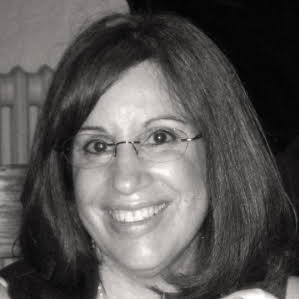 USA Today and Amazon bestselling and award-winning author Lois Winston writes mystery, romance, romantic suspense, chick lit, women’s fiction, children’s chapter books, and nonfiction under her own name and her Emma Carlyle pen name. Kirkus Reviews dubbed her critically acclaimed Anastasia Pollack Crafting Mystery series, “North Jersey’s more mature answer to Stephanie Plum.” In addition, Lois is a former literary agent and an award-winning craft and needlework designer who often draws much of her source material for both her characters and plots from her experiences in the crafts industry. Her latest book in the series is Guilty as Framed, currently available for pre-order. Learn more about Lois and her books at her website www.loiswinston.com where you can also sign up for her newsletter and follow her on various social media sites.
USA Today and Amazon bestselling and award-winning author Lois Winston writes mystery, romance, romantic suspense, chick lit, women’s fiction, children’s chapter books, and nonfiction under her own name and her Emma Carlyle pen name. Kirkus Reviews dubbed her critically acclaimed Anastasia Pollack Crafting Mystery series, “North Jersey’s more mature answer to Stephanie Plum.” In addition, Lois is a former literary agent and an award-winning craft and needlework designer who often draws much of her source material for both her characters and plots from her experiences in the crafts industry. Her latest book in the series is Guilty as Framed, currently available for pre-order. Learn more about Lois and her books at her website www.loiswinston.com where you can also sign up for her newsletter and follow her on various social media sites.

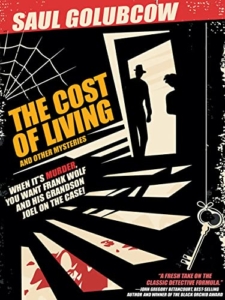



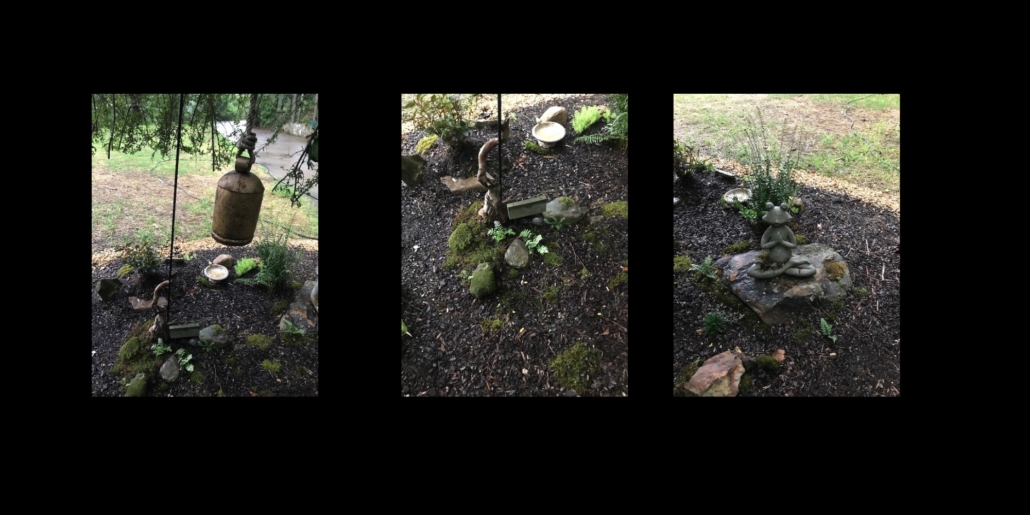
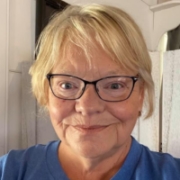

 “He’s fine, too.” More sniffles and gasps for breath, then, “We’re both ok but I think the cow’s dead.”
“He’s fine, too.” More sniffles and gasps for breath, then, “We’re both ok but I think the cow’s dead.”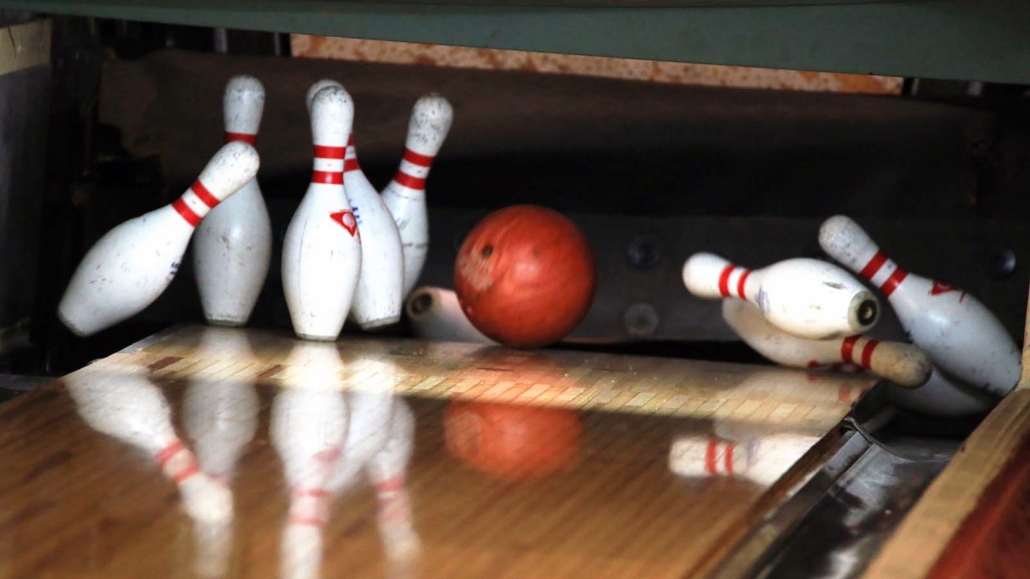

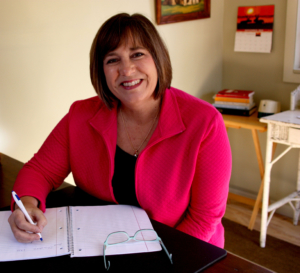
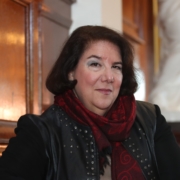

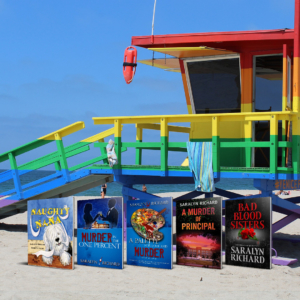
 Frank Wolf, survived the Holocaust with his daughter and resettled from Vienna, Austria, to New York City. In his earlier life, Frank was a scholar, but proof of his academic background was destroyed by Nazis. Unable to pursue a career as a professor, Frank became a security guard for a library. Then, eventually, he set up an office as a private detective.
Frank Wolf, survived the Holocaust with his daughter and resettled from Vienna, Austria, to New York City. In his earlier life, Frank was a scholar, but proof of his academic background was destroyed by Nazis. Unable to pursue a career as a professor, Frank became a security guard for a library. Then, eventually, he set up an office as a private detective.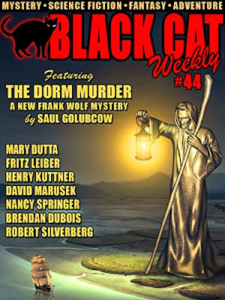

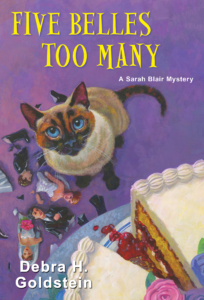

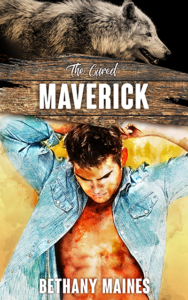 Release Day
Release Day

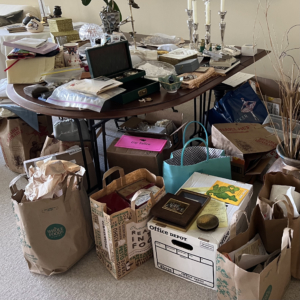 There’s a reason why it resembles the loading dock at your neighborhood Goodwill.
There’s a reason why it resembles the loading dock at your neighborhood Goodwill.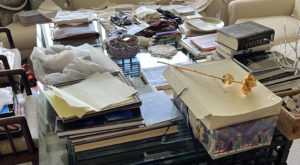 I sprang into action and gave away furniture to anyone who would haul it off, toted dozens of boxes and bags full of clothing and household items to local charities, lugged a couple of lawn bags heavy with decades of paper receipts to the shredder, and offloaded books (Mom owned hundreds of them) to various collectors. By the closing date, everything was out of there. Whew!
I sprang into action and gave away furniture to anyone who would haul it off, toted dozens of boxes and bags full of clothing and household items to local charities, lugged a couple of lawn bags heavy with decades of paper receipts to the shredder, and offloaded books (Mom owned hundreds of them) to various collectors. By the closing date, everything was out of there. Whew!
